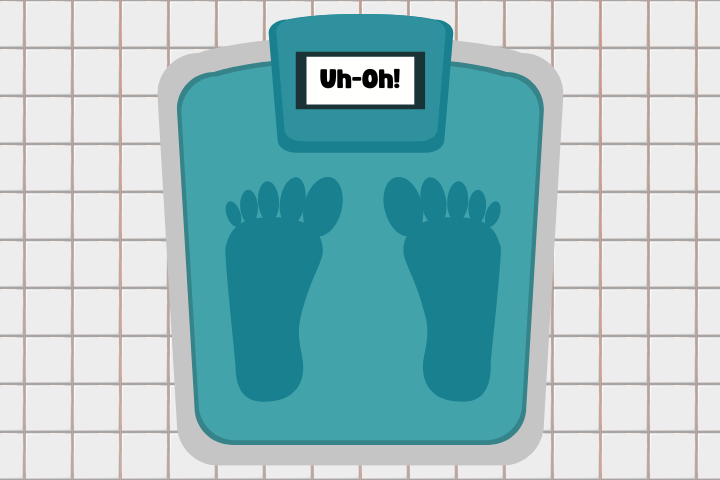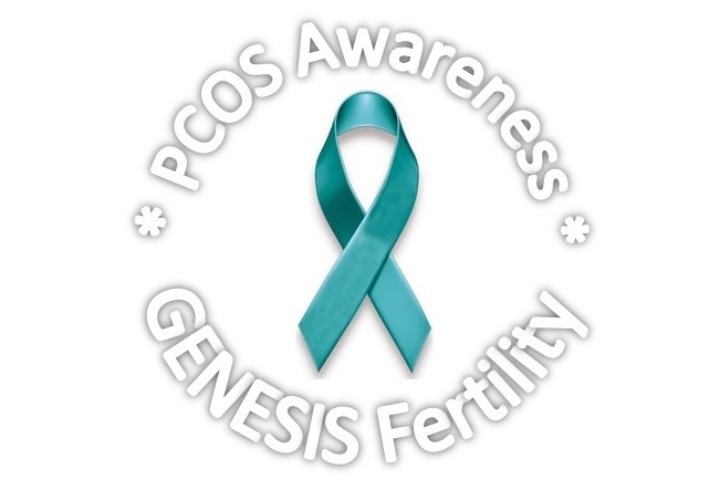In a world filled with baby pictures on social media, it often comes as a surprise for couples to learn that infertility affects about 10 percent of the population. Even more of a surprise is the link between nutrition and infertility. While couples can’t control all of the causes of infertility, they can control their eating habits. Good nutrition and a healthy body weight for both partners can have a significant impact on the ability to conceive.
Find your healthy weight
You can calculate your BMI quickly using this online calculator. Compared to individuals with a BMI between 18.5 and 25:
- Women with a BMI of 30 or higher are more likely to:
- Take over one year to become pregnant, due to hormonal abnormalities leading to anovulation1,
- Suffer complications in pregnancy such as high blood pressure, diabetes, blood clots, infection, miscarriage, premature birth, Caesarean birth and stillbirth2–4,
- Deliver a baby with need for intensive care, increased size for age, congenital abnormalities and increased risk of health problems in later life such as obesity, due to the adverse effects on the baby’s genes of the environment in which is developing.
- Men with a BMI of 30 or higher are more likely to have low testosterone levels and consequently erectile dysfunction, low sperm count and poor sperm mobility5.
- ART patients with a BMI of 30 or higher are more likely to require higher doses of fertility medications and are less likely to achieve a pregnancy or live birth6–9.
- Women with a BMI of less than 18.5 are more than twice as likely to take over one year to become pregnant, due to hormonal abnormalities leading to anovulation.
Increasing fertility
By changing various aspect of their diet and exercise habits, women with irregular or absent ovulation can cut their risk of infertility by 80%. Losing 10% or of more body weight can begin to achieve the hormonal levels required for regular ovulation, increase the likelihood of pregnancy and optimize the health of the baby10–12.
 Nutrition and infertility
Nutrition and infertility
Changes to diet and exercise can be more effective than medication such as Clomid and Metformin in treating PCOS13,14. Those with the greatest effect on nutrition and infertility are changes which promote weight loss and minimize surges in insulin and therefore androgens, such as:
Increasing intake of:
- Unrefined carbohydrates which are broken down to release sugar slowly and are nutrient dense, such as sweet potatoes and quinoa15,16,
- Protein from plant foods, eggs, fish and lean meat which is low in calories,
- Healthy saturated fats such as full-fat dairy, nuts and avocado16,17,
- Folic acid and iron from vegetables and supplements10.
Avoiding:
- Restriction diets which are difficult to sustain18,
- Processed foods which are rapidly broken down, nutrient poor and can contain carcinogenic substances such as some food colourings,
- Sugar – limiting fruit intake to fresh and wholes fruits which are high in fibre such as berries and melon,
- Trans fats such as vegetable oil,
- Foods which can cause an inflammatory reaction if you have a known intolerance such as gluten, soy and dairy19.
Moderating:
- Caffeine, due to its potential to stimulate insulin,
- Alcohol, which can increase the existing risk of liver disease in PCOS20.
At GENESIS, your doctor will discuss with you the importance of nutrition and infertility as part of the overall review of your medical records and history. If you need a bit more guidance you may want to consult with a nutritionist, who can provide information on how to safely and effectively reach your goals based on your health or medical needs.
If you would like to learn more about GENESIS Fertility New York or are ready to schedule an appointment, please speak with one of our New Patient Specialists at 929-605-5467
References
- Gesink Law, D. C., Maclehose, R. F. & Longnecker, M. P. Obesity and time to pregnancy. [Article]. Hum. Reprod. 22, 414–420 (2008).
- Athukorala, C., Rumbold, A. R., Willson, K. J. & Crowther, C. A. The risk of adverse pregnancy outcomes in women who are overweight or obese. (2010).
- Tennant, P. W. G., Rankin, J. & Bell, R. Maternal body mass index and the risk of fetal and infant death: A cohort study from the North of England. Hum. Reprod. 26, 1501–1511 (2011).
- Barau, G. et al. Linear association between maternal pre-pregnancy body mass index and risk of caesarean section in term deliveries. BJOG An Int. J. Obstet. Gynaecol. 113, 1173–1177 (2006).
- Hammoud, A. O., Carrell, D. T., Gibson, M., Peterson, C. M. & Meikle, A. W. Updates on the relation of weight excess and reproductive function in men: Sleep apnea as a new area of interest. Asian J. Androl. 14, 77–81 (2012).
- Bakos, H. W., Henshaw, R. C., Mitchell, M. & Lane, M. Paternal body mass index is associated with decreased blastocyst development and reduced live birth rates following assisted reproductive technology. Fertil. Steril. 95, 1700–1704 (2011).
- Luke, B. et al. Female obesity adversely affects assisted reproductive technology (ART) pregnancy and live birth rates. Hum. Reprod. 26, 245–252 (2011).
- Moragianni, V. A., Jones, S. M. L. & Ryley, D. A. The effect of body mass index on the outcomes of first assisted reproductive technology cycles. Fertil. Steril. 98, 102–108 (2012).
- Rittenberg, V. et al. Influence of BMI on risk of miscarriage after single blastocyst transfer. Hum. Reprod. 26, 2642–2650 (2011).
- Chavarro, J. E., Rich-Edwards, J. W., Rosner, B. A. & Willett, W. C. Diet and lifestyle in the prevention of ovulatory disorder infertility. Obstet. Gynecol. 110, 1050–1058 (2007).
- Clark, a. M., Thornley, B., Tomlinson, L., Galletley, C. & Norman, R. J. Weight loss in obese infertile women results in improvement in reproductive outcome for all forms of fertility treatment. Hum. Reprod. 13, 1502–1505 (1998).
- Norman, R. J. et al. Improving reproductive performance in overweight/obese women with effective weight management. Hum. Reprod. Update 10, 267–280 (2004).
- Karimzadeh, M. A. & Javedani, M. An assessment of lifestyle modification versus medical treatment with clomiphene citrate, metformin, and clomiphene citrate-metformin in patients with polycystic ovary syndrome. Fertil. Steril. 94, 216–220 (2010).
- Moran, L. J. et al. Dietary composition in the treatment of polycystic ovary syndrome: A systematic review to inform evidence-based guidelines. Hum. Reprod. Update 19, 432 (2013).
- Chavarro, J. E., Rich-edwards, J. W., Rosner, B. & Willett, W. A prospective study of dietary carbohydrate quantity and quality in relation to risk of ovulatory infertility. Eur jclin nutr 63, 78–86 (2011).
- Goss, A. M. et al. Effects of a eucaloric reduced-carbohydrate diet on body composition and fat distribution in women with PCOS. Metabolism 63, 1257–1264 (2015).
- Schwingshackl, L. & Hoffmann, G. Comparison of the long-term effects of high-fat v. low-fat diet consumption on cardiometabolic risk factors in subjects with abnormal glucose metabolism: A systematic review and meta-analysis. Br. J. Nutr. 111, 2047–2058 (2014).
- Mann, T. et al. Medicare’s Search for Effective Obesity Treatments: Diets Are Not the Answer. Am. Psychol. 62, 220–233 (2007).
- Mobeen, H., Afzal, N. & Kashif, M. Polycystic Ovary Syndrome May Be an Autoimmune Disorder. Scientifica (Cairo). 2016, (2016).
- Kelley, C. E., Brown, A. J., Diehl, A. M. & Setji, T. L. Review of nonalcoholic fatty liver disease in women with polycystic ovary syndrome. World J. Gastroenterol. 20, 14172–14184 (2014).





